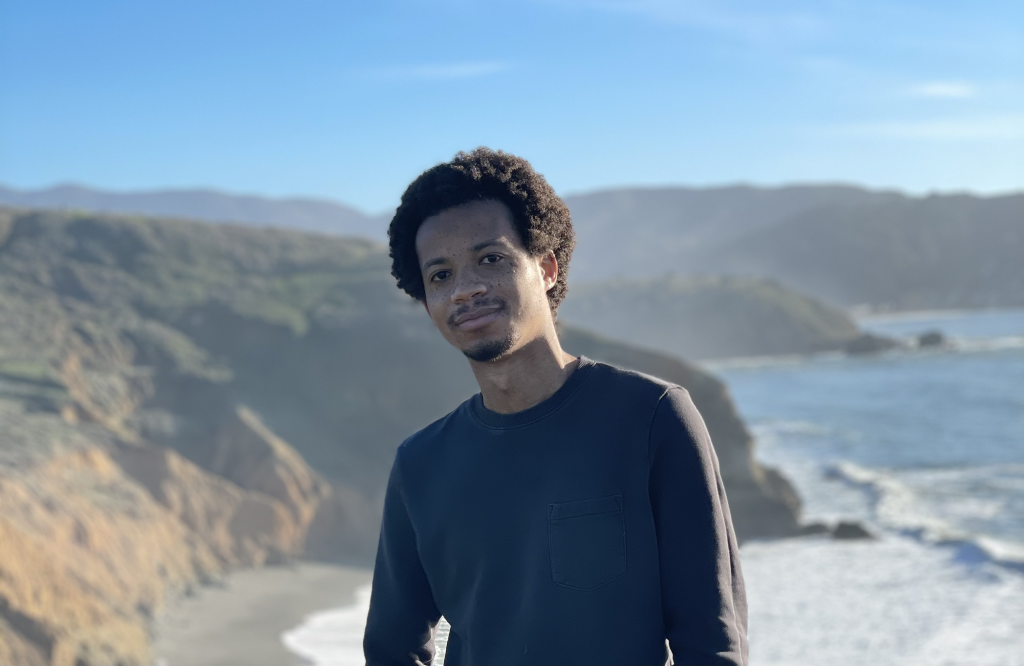
Scalable, sustainable energy systems for all Africans
Forbes 30-under-30 honoree Olamide Oladeji SM ’18, AF ’20 is a TPP alum, PhD candidate, MicroMasters learner, data scientist, and entrepreneur looking to answer climate change questions with help from advances in artificial intelligence.
What brought you to TPP and what did you study/research while you were here?
I came to TPP to better understand energy systems modeling and formulating energy policy for the developing world. As an undergraduate and later engineer in Nigeria, I had done some research and design work around energy systems and came to realize that addressing certain large scale societal questions such as ‘how do we effectively build scalable, sustainable energy systems for all Africans?” involved not only coming up with effective policies, but undertaking rigorous technology analyses.
At MIT, my research was exactly in this area. I worked with [MIT Visiting Professor] Ignacio Pérez-Arriaga and researchers at the MIT Energy Initiative to develop and test the reference electrification model, a comprehensive software which helps governments, utilities, and private energy developers in developing countries plan their energy systems at very large scales and come up with effective long term energy policy. I worked with the Tata Center, where I met with stakeholders to understand their needs, and also did a lot of software coding integrating areas like optimization and machine learning. I also completed a dual degree with the EECS department.
I was recently invited by the Nigerian government to contribute to the National Artificial Intelligence Policy as a member of the government’s AI policy expert group. I am grateful to TPP for giving me the springboard to help my country of origin in such an important way!
Where did you go after TPP and what work/research were you doing?
I initially moved to the Bay Area to work as a Data Scientist at PG&E, California’s largest utility. I spent a year there; I wanted to better understand and support the clean energy transition here in the US and also further develop my competencies in data science/machine learning which my time at TPP had provided strong foundations for.
As a Data Scientist at PG&E, my work spanned across several areas, from building models to aid detection and mitigation of wildfires in California to leveraging data science and energy systems modeling to inform the utility’s strategy around decarbonization.
During this time, I participated in and completed the MITx MicroMasters Statistics and Data Science. I decided to enroll in it because I really enjoyed the statistics and machine learning classes I had taken at MIT, and I wanted to learn more while on the job. I particularly liked the fundamentals of statistics and data analysis for social science classes; I learned a lot of new things I continue to refer to in my PhD studies.
What is a focus for your work now, and how did TPP help you on your journey?
I left PG&E to enroll in a PhD at Stanford’s Management Science & Engineering department in 2019. My research focuses on AI for Climate Change and tries to answer large-scale climate change related questions (such as those around carbon accounting, offsets, and decarbonization of transportation) with models that now better leverage recent artificial intelligence advancements.
TPP provided the ultimate foundation for my PhD. Doing research at that depth while at TPP meant that I was able to hit the ground running in my PhD, and I had the self-confidence to pursue interesting, important research questions, even if they seemed thorny.
In 2021, I also co-founded Pastel, a fintech startup which has to date helped over 140,000 small businesses in developing countries manage their business, and receive payments and low-cost financing. Small businesses are the “engines” of developing economies and I had always wanted to use the technology skills I had acquired to support them, so Pastel was born out of that.
Through TPP and my Tata Fellowship, I took a variety of classes such as entrepreneurship and design for developing countries at Sloan and interfaced directly with industry and government stakeholders. These experiences and classes have been very fundamental to my founding of Pastel and my overall growth as an entrepreneur.
Overall, I have very fond memories of my time at TPP, from what I learned to all the amazing people I connected with. I also am really grateful for the generous Tata Fellowship I received with the aid of the program, which made it possible for me to study at MIT.



